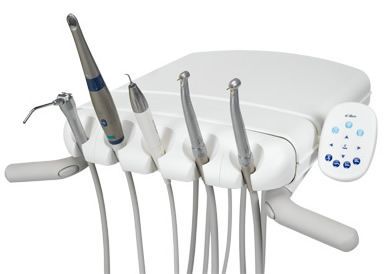
HIPAA and Privacy Act Training
Safeguarding Patient Privacy in Healthcare

In today’s healthcare environment, ensuring the privacy and security of patient information is critical. With the growing use of digital records and telemedicine, healthcare providers must diligently safeguard sensitive data. HIPAA (Health Insurance Portability and Accountability Act) and the Privacy Act are essential regulations that protect patient privacy and guide healthcare professionals on properly handling health information.
What is HIPAA?
HIPAA, enacted in 1996, was designed to protect patient health information (PHI) from being disclosed without the patient’s consent or knowledge. It sets standards for the secure transmission and storage of PHI and establishes patients' rights to access their health records. Compliance with HIPAA is not optional for healthcare providers—it's the law. Violations can result in hefty fines and damage to an organization’s reputation.
What is the Privacy Act?
The Privacy Act of 1974 applies to federal agencies and ensures they safeguard personal information in their systems. While HIPAA is specific to healthcare, the Privacy Act is broader, covering any personal data collected by the federal government. Understanding the differences between these laws is vital for healthcare professionals working in federal agencies or handling information related to government programs.
Why is HIPAA and Privacy Act Training Important?
Healthcare professionals must maintain compliance with HIPAA and the Privacy Act. Training helps ensure that everyone in the healthcare ecosystem—from front desk staff to IT professionals—understands how to handle patient data responsibly.
Here’s why HIPAA and Privacy Act training should be a priority:
- Preventing Data Breaches: Training helps staff recognize and avoid risky behaviors that could lead to data breaches. This includes understanding phishing attacks, encryption practices, and the safe use of mobile devices in healthcare settings.
- Building Trust with Patients: Patients trust healthcare providers with their most sensitive information. Providers can maintain that trust and foster a sense of security by ensuring compliance with HIPAA and the Privacy Act.
- Minimizing Legal Risks: HIPAA and Privacy Act violations can lead to severe penalties. Training helps minimize the risk of legal repercussions by ensuring that staff knows and follows the law.
- Creating a Culture of Compliance: Regular training ensures that privacy protection becomes second nature within your organization. When everyone understands the importance of compliance, it becomes part of the culture.
Critical Components of HIPAA and Privacy Act Training
Effective training should cover several essential areas:
- Understanding PHI: Employees should know what constitutes protected health information and the rules for its disclosure.
- Recognizing Security Threats: Cybersecurity training should be part of the curriculum, helping staff to identify and avoid potential threats.
- Patient Rights: Staff must understand patients' rights to access and control their health information.
- Incident Reporting: Employees should be trained to immediately report any potential breaches or unauthorized disclosures.
How Often Should You Conduct Training?
HIPAA mandates that training be conducted regularly, but many organizations offer annual refreshers to ensure compliance. New employees must complete training as part of their onboarding process, and updates should be provided whenever policies or regulations change.
Conclusion
HIPAA and Privacy Act training is not just about checking a compliance box—it’s about protecting patients, minimizing risks, and creating a secure environment for healthcare. Investing in thorough, ongoing training for your team you help build a culture of privacy and trust that benefits your organization and your patients.
Stay compliant. Stay secure. Stay trusted.












